Hugo Seuté
Analyzing and Improving Speaker Similarity Assessment for Speech Synthesis
Jul 02, 2025Abstract:Modeling voice identity is challenging due to its multifaceted nature. In generative speech systems, identity is often assessed using automatic speaker verification (ASV) embeddings, designed for discrimination rather than characterizing identity. This paper investigates which aspects of a voice are captured in such representations. We find that widely used ASV embeddings focus mainly on static features like timbre and pitch range, while neglecting dynamic elements such as rhythm. We also identify confounding factors that compromise speaker similarity measurements and suggest mitigation strategies. To address these gaps, we propose U3D, a metric that evaluates speakers' dynamic rhythm patterns. This work contributes to the ongoing challenge of assessing speaker identity consistency in the context of ever-better voice cloning systems. We publicly release our code.
A Comparison of Discrete and Soft Speech Units for Improved Voice Conversion
Nov 03, 2021
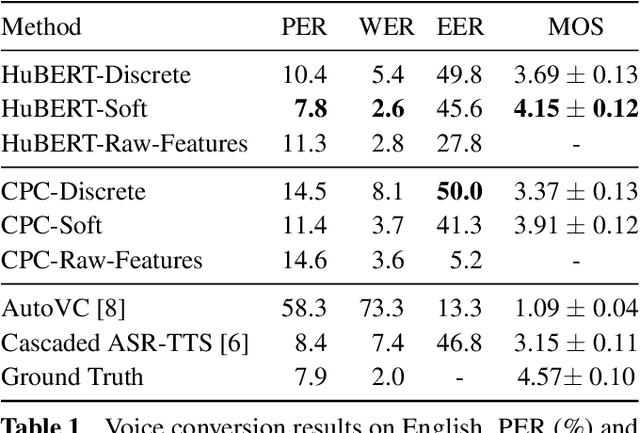

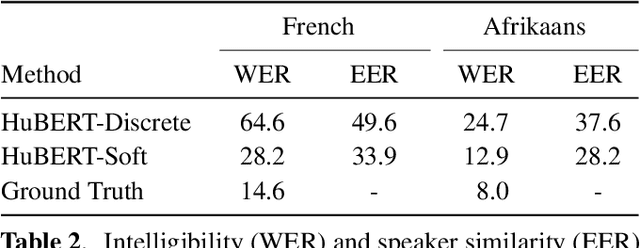
Abstract:The goal of voice conversion is to transform source speech into a target voice, keeping the content unchanged. In this paper, we focus on self-supervised representation learning for voice conversion. Specifically, we compare discrete and soft speech units as input features. We find that discrete representations effectively remove speaker information but discard some linguistic content - leading to mispronunciations. As a solution, we propose soft speech units. To learn soft units, we predict a distribution over discrete speech units. By modeling uncertainty, soft units capture more content information, improving the intelligibility and naturalness of converted speech. Samples available at https://ubisoft-laforge.github.io/speech/soft-vc/
Daft-Exprt: Robust Prosody Transfer Across Speakers for Expressive Speech Synthesis
Aug 04, 2021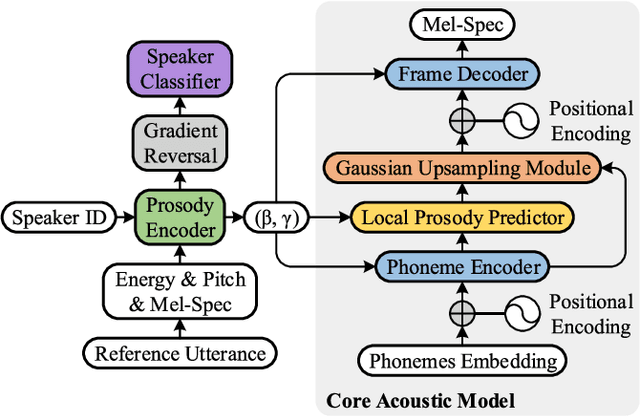
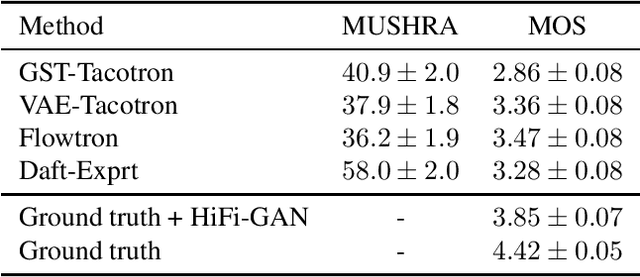
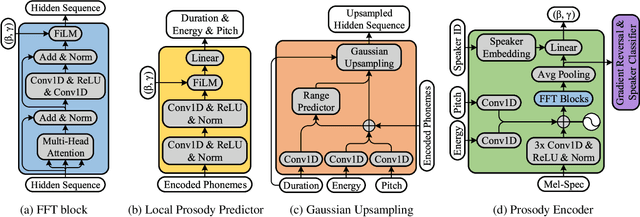

Abstract:This paper presents Daft-Exprt, a multi-speaker acoustic model advancing the state-of-the-art on inter-speaker and inter-text prosody transfer. This improvement is achieved using FiLM conditioning layers, alongside adversarial training that encourages disentanglement between prosodic information and speaker identity. The acoustic model inherits attractive qualities from FastSpeech 2, such as fast inference and local prosody attributes prediction for finer grained control over generation. Experimental results show that Daft-Exprt significantly outperforms strong baselines on prosody transfer tasks, while yielding naturalness comparable to state-of-the-art expressive models. Moreover, results indicate that adversarial training effectively discards speaker identity information from the prosody representation, which ensures Daft-Exprt will consistently generate speech with the desired voice. We publicly release our code and provide speech samples from our experiments.
 Add to Chrome
Add to Chrome Add to Firefox
Add to Firefox Add to Edge
Add to Edge